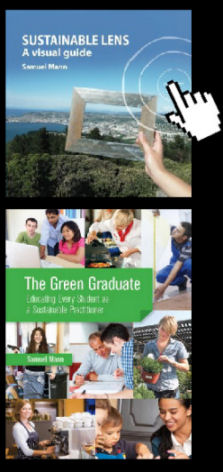I remember shortly after Al Gore published “Earth in the Balance, Ecology and the Human Spirit” in 1992, a reviewer arguing that beyond the substance of the book, what was even more impressive was that it was actually written by the Vice President of the United States. I’ve just unsuccessfully looked for the review but I remember clearly the reviewer repeating “In case you missed the significance: this is an ecology text book written by the vice president”.
I feel somewhat the same way about this TED talk by Gordon Brown. There’s a big discussion on the TED forums – should TED be a vehicle for political grandstanding? But I think they’ve missed the point. Here is one of the global leaders talking about global challenges. He’s doing it without notes and is clearly passionate:
And what do all these pictures and events have in common? What they have in common is what we see unlocked and what we cannot see. What we see unlocked: the invisible ties and bonds of sympathy that bring us together to become a human community. What these pictures demonstrate is that we do feel the pain of others, however distantly. What I think these pictures demonstrate is that we do believe in something bigger than ourselves. What these pictures demonstrate is that there is a moral sense across all religions, across all faiths, across all continents — a moral sense that not only do we share the pain of others, and believe in something bigger than ourselves but we have a duty to act when we see things that are wrong that need righted, see injuries that need to be corrected, see problems that need to be rectified.
I believe there is a moral sense and a global ethic that commands attention from people of every religion and every faith, and people of no faith. But I think what’s new is that we now have the capacity to communicate instantaneously across frontiers right across the world. We now have the capacity to find common ground with people we will never meet but who we will meet through the Internet and through all the modern means of communication, that we now have the capacity to organize and take collective action together to deal with the problem or an injustice that we want to deal with, and I believe that this makes this a unique age in human history, and it is the start of what I would call the creation of a truly global society.
Take, therefore, what modern technology is capable of: the power of our moral sense allied to the power of communications and our ability to organize internationally.
That, in my view, gives us the first opportunity as a community to fundamentally change the world. Foreign policy can never be the same again. It cannot be run by elites; it’s got to be run by listening to the public opinions of peoples who are blogging, who are communicating with each other around the world.
Whether this will win Brown votes at home is irrelevant. We might think his particular model of a global society is too institutionalised, but this too is missing the point. Here we have a global leader recognising global problems, recognising that something has changed and recognising that through computing and communication we can do something about it.
Thank you Mr Brown.

Leigh
July 31, 2009
Slightly worrying to me. The same “global leaders” (whatever that will come to mean) and their global perspectives on economics, law, trade, military interventions, are suddenly seeing eye to eye with greenies.. it could be a wonderful sign as you suggest. I think we should look deeper. Why are these spokespeople suddenly permitted to speak about these topics when everything else in the problem remains the same? The same public servants, the same military agenda, the same corporations, and the same foreign policies and interests. There’s always been a hidden agenda, what is it this time? I don’t know, and I’m just as skeptical of the conspiracy theorists, but I do find it all very suspicious.